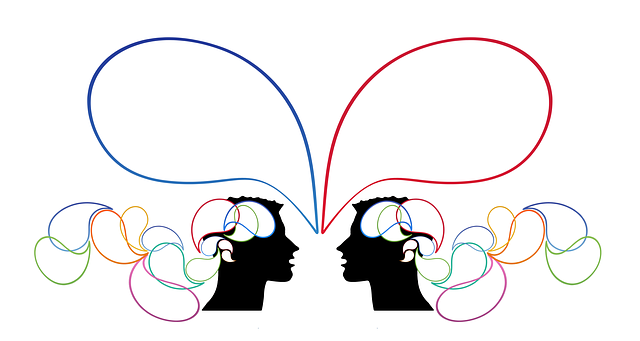Meeting with a new person is an exciting event. Consciously or not, in our curious minds there are many questions about the person we met, and their main purpose is to determine what we think about him. Many variables participate in this hidden process, including facial expression, posture, dress, and style of speech. All of these crystallize into a decision regarding the subject and catalog in the Memorial Library. It turns out that of all the questions and questions, only two really make the first impression: Can we trust that person - and can we respect him?

Determining Your Position
The person responsible for this discovery is Professor Amy Cady of the Harvard Business School, along with her colleagues Susan Fisk and Peter Glick. The psychologist, who was published in one of the most famous TED lectures, is investigating the phenomenon called "The first impression" for over 15 years, and she concludes that the two most important issues we form within seconds of the initial communication are how much confidence we have in the particular person The honor we are willing to give him. An article in the Business Insider explains what these questions mean and why they get the most weight in determining our position.In December 2015, Cady published the book Presence, summarizing her long-term research, in which she describes, among other things, the two criteria for the initial impression. In academic language the questions are translated into two terms: Heat - Can I rely on the person; Ability - Can I respect the person; Heat and capacity, then, are the first two criteria that our minds dwell on when we meet a new person. To say a little, warmth refers to the interpersonal skills of the person in question - does he show closeness or distance, does he transmit credibility or dishonesty? While competence relates to professional skills, is the person perceived by us as wise and skilled?
Anyone can fall in one of four possible combinations
According to Professor Cady's theory, we classify and categorize each person on the continuum of the two scales - heat and ability - and create a kind of weighted score. In rough lines, each person can fall into one of four possible combinations, according to the way he is perceived in relation to the degree of reliability and the degree of talent. The person can be perceived as reliable and competent, reliable and incompetent, unreliable and competent, unreliable, and incompetent.Susan Fisk, a research associate, explains in The Inquisitive Mind how each combination can affect how the character is portrayed. A person who has the impression that he can be trusted and also has a talent can "inspire admiration and pride among you."
A person perceived as unreliable and incapable can "provoke feelings of contempt and rejection." In a case where we attribute credibility and warmth to the person but not ability and talent, "it will create pity and sympathy among us." And finally, a person who looks unreliable but capable can "lead to resentment and even envy."
All of this, as mentioned, was burned into our subconscious within seconds.
Create the perfect image
It seems that the best thing is to create a perfect image, and of course, it is not worthwhile to be perceived as an unreliable and incompetent person. But what about the gray area - is it better to be perceived as more reliable than talented, or is it better for people to think we are talented and to put aside our interpersonal skills?"Most people, especially in a professional context, believe that ability is the more important factor," Cady said. When looking at a situation in which people are measured mainly on their performance, such as job interviews, presentations, etc, it is natural that they want to prove that they are successful enough. "But in fact, heat - or reliability - is the most important factor in how people value you." And the reason, according to Cady, is evolutionary.

Who would you want to be trapped on a deserted island with?
"From an evolutionary point of view," Cady explains, "it is more critical to our survival to know whether any person deserves our trust." We tend to believe that with lack of talent it is possible to live in peace, perhaps because it can be overcome through study, practice, or help. Lack of trust in a person can have very large implications and it is a personality aspect that is much harder to change. It may really be a personality issue that makes the trust factor think more. We see this trait as a fundamental element in a person's identity, whereas ability is perceived more as something acquired. Take a situation where you are stuck on a deserted island with two other people. One proved his survival skills immaculate, but you caught him hiding food. While the second does not add much to the effort to survive but gave you half the food he found. Who would you prefer to sleep in in that makeshift hut? This is an extreme example and although it does not really deal with a first impression, it clearly illustrates the difference between the two characteristics.
Your ability is very important
According to Cady's long study, your ability is a very important criterion, but it is only tested after your confidence has been established. She believes that "excessive focus on displaying your strengths may create an undesirable effect." The logic behind this concept is simple: if a person gives up the social aspect and invests entirely in the professional aspect, it creates a situation that people do not know enough about and do not know if they can be trusted. In extreme situations, such a person may even be perceived as manipulative. "Only after you have established trust in your strengths will you be perceived as a gift and not as a threat."
Monitoring the status of the body and mind in real time
Naturally, it is very difficult to forge confidence, and of course, it is not desirable unless you are professional crooks. And so Cady's book focuses on the ability to bring your authentic personality confidently to each session and let it do the job. Once you have established trust, the way is much more open to you to create an excellent impression. In the introduction to the book, it is written that stressful situations can get us out of a message that we did not intend to do. "Just the moments that require us to be real and in control can instead be perceived as false and weak." Therefore, the main road to a successful first impression is to maintain coolness, self-confidence and, most importantly, authenticity. She proposes to do this through constant awareness in real time to our body language, behavior, and state of mind - and to perform maneuvers and adjustments On the move.Because our brain works as it does, we catalog people in familiar patterns rather than in a profound way that takes into account all the different aspects of reality - and in the same way other people catalog us. Since this is a natural mechanism, it seems that the best way to respond to it is to choose the natural path, that is, to remember that, above all, we are all human beings - and that human contact is based on trust before any other legitimate interest.

Every time I watch another TED, I have a desire to understand more about the subject. I am searching the Internet for more information that can connect what is missing. I wrote this post after watching a lecture and various articles on the subject. Hope I pass the information on the form is good enough.
Images via Pixabay.com & shutterstock.com


Downvoting a post can decrease pending rewards and make it less visible. Common reasons:
Submit
This post has received a 6.64 % upvote from @boomerang thanks to: @nirgf
@boomerang distributes 100% of the SBD and up to 80% of the Curation Rewards to STEEM POWER Delegators. If you want to bid for votes or want to delegate SP please read the @boomerang whitepaper.
Downvoting a post can decrease pending rewards and make it less visible. Common reasons:
Submit
This post has received a 33.33 % upvote from @upgoater thanks to: @nirgf.
Downvoting a post can decrease pending rewards and make it less visible. Common reasons:
Submit
This post has received a 1.19 % upvote from @buildawhale thanks to: @nirgf. Send at least 1 SBD to @buildawhale with a post link in the memo field for a portion of the next vote.
To support our daily curation initiative, please vote on my owner, @themarkymark, as a Steem Witness
Downvoting a post can decrease pending rewards and make it less visible. Common reasons:
Submit
Thank you for the upvote @buildawhale
Downvoting a post can decrease pending rewards and make it less visible. Common reasons:
Submit
Downvoting a post can decrease pending rewards and make it less visible. Common reasons:
Submit
What a charmer, I like it.
I need to talk to you please, I'm here: steemit.chat
Downvoting a post can decrease pending rewards and make it less visible. Common reasons:
Submit
Downvoting a post can decrease pending rewards and make it less visible. Common reasons:
Submit
Thank you for the upvote @qurator
Downvoting a post can decrease pending rewards and make it less visible. Common reasons:
Submit
Very nice post. Thanks for sharing
Downvoting a post can decrease pending rewards and make it less visible. Common reasons:
Submit
Thanks for reading and commenting
I appreciate it
Downvoting a post can decrease pending rewards and make it less visible. Common reasons:
Submit
Hello
Downvoting a post can decrease pending rewards and make it less visible. Common reasons:
Submit
😍A very informative post. Great job. Keep it up! 😍

Downvoting a post can decrease pending rewards and make it less visible. Common reasons:
Submit
Awesome ! Thank you!
love the gif
Downvoting a post can decrease pending rewards and make it less visible. Common reasons:
Submit
This post has received gratitude of 0.75 % from @appreciator thanks to: @nirgf.
Downvoting a post can decrease pending rewards and make it less visible. Common reasons:
Submit
Thank you for the upvote @appreciator
Downvoting a post can decrease pending rewards and make it less visible. Common reasons:
Submit
I have not seen you for a long time !originalworks @OriginalWorks
Downvoting a post can decrease pending rewards and make it less visible. Common reasons:
Submit
The @OriginalWorks bot has determined this post by @nirgf to be original material and upvoted(1.5%) it!
To call @OriginalWorks, simply reply to any post with @originalworks or !originalworks in your message!
Downvoting a post can decrease pending rewards and make it less visible. Common reasons:
Submit
I think dressing and the communication skills definitely plays a big role.
Downvoting a post can decrease pending rewards and make it less visible. Common reasons:
Submit
Absolutely right, thanks for your comment on the post @skysnap
Downvoting a post can decrease pending rewards and make it less visible. Common reasons:
Submit
True, our own ability is important. Without that and we are just BS-ing, we lose reliability along the way. I would say, honesty sometimes stands through time, presenting yourself as genuine as possible.
Downvoting a post can decrease pending rewards and make it less visible. Common reasons:
Submit
Thank you for the lovely response.
In most cases, it takes time to lower our defenses
Downvoting a post can decrease pending rewards and make it less visible. Common reasons:
Submit
True :) people problem.
Downvoting a post can decrease pending rewards and make it less visible. Common reasons:
Submit
Your post had been curated by the @buildawhale team and mentioned here:
https://steemit.com/buildawhale/@buildawhale/buildawhale-curation-digest-12-4-17
You have received a Whaleshare Token upvote by the account @officialfuzzy thanks to the whaleshares community and @buildawhale
Keep up the good work and original content, everyone appreciates it!
Downvoting a post can decrease pending rewards and make it less visible. Common reasons:
Submit
I am so glad :)
Thank you so much, guys !!!
Downvoting a post can decrease pending rewards and make it less visible. Common reasons:
Submit